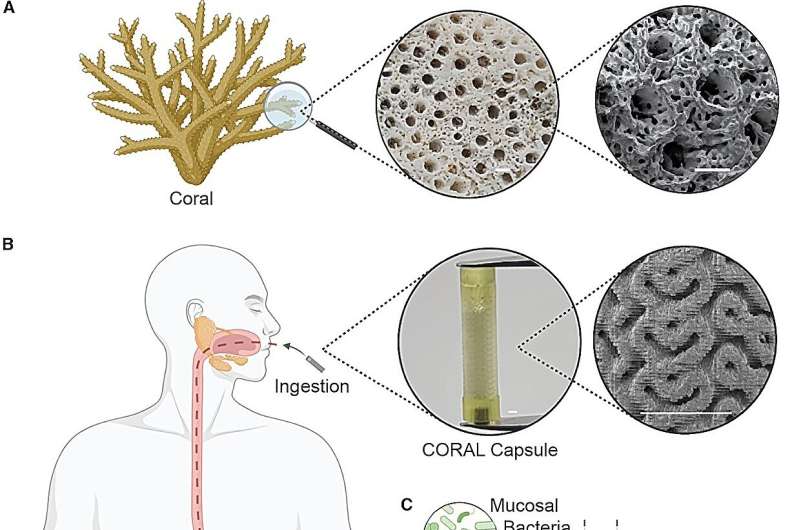The CORAL (Cellularly Organized Repeating Lattice) capsule, developed by Khalil Ramadi—assistant professor of bioengineering at NYU Tandon School of Engineering and NYU Abu Dhabi (NYUAD)—and NYUAD collaborators, promises the first passive, noninvasive way to collect microbes from the upper digestive tract. Once swallowed, the device physically traps bacteria as it travels naturally through the digestive system before exiting the body.
In a study published in Device, the team demonstrated that their coral-inspired device provides a more comprehensive picture of the small intestine’s bacterial landscape than traditional stool samples, the current gold standard for microbiome research.
“Fecal samples, though easy to collect, do not accurately represent the microbial communities in distinct regions of the gut,” said Ramadi, who directs the Laboratory for Advanced Neuroengineering and Translational Medicine at NYUAD.

